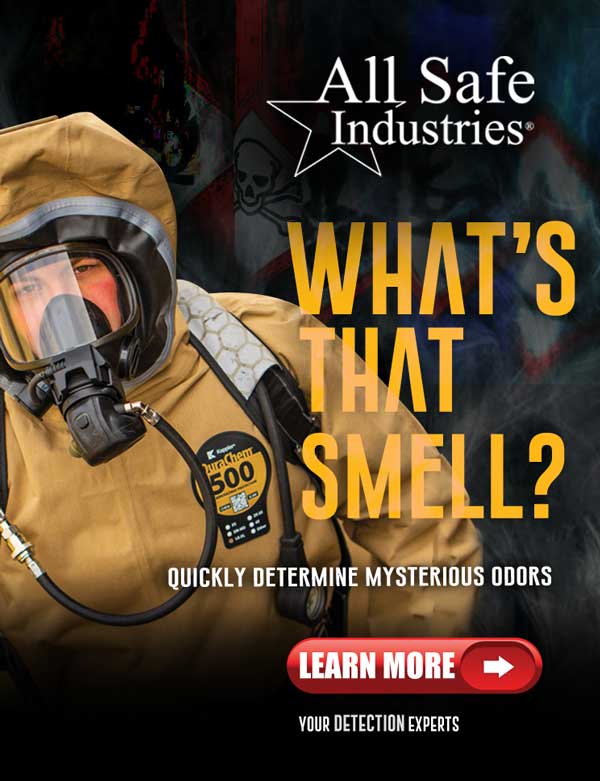Originally published by NBCDFW
Federal regulators revealed new natural gas safety recommendations just shy of three years since a deadly home explosion in Dallas killed a child.
On the morning of Feb. 23, 2018, a video recorded by 12-year-old Linda ‘Michelita’ Rogers showed her up and excitedly getting ready for a cheerleading competition when disaster strikes. The girl’s home had unknowingly filled with natural gas and exploded, killing her and injuring her family.
The tragedy that struck the Rogers family came within weeks of two other home explosions in their neighborhood.
“The National Transportation Safety Board determines that the probable safety cause of the explosion at 3534 Espanola Drive was the ignition of an accumulation of natural gas that leaked from a gas main that was damaged during a sewer replacement project 23 years earlier and was undetected by ATMOS Energy Corporation’s investigation of two related natural gas incidents on the two days prior to the explosion,” the National Transportation Safety Board said in a probable cause statement Tuesday.
The NTSB then questioned why Atmos didn’t shut off the gas in the neighborhood more quickly as well as their investigation protocols.
“Contributing to the explosion was ATMOS Energy Corporation’s insufficient wet weather leak investigation procedures. Contributing to the severity of the explosion was ATMOS Energy Corporation’s inaction to isolate the effected main and evacuate the houses. Contributing to the degradation of the pipeline system was ATMOS Energy Corporation’s inadequate integrity program,” the NTSB said.
The board recommended changes to federal reporting requirements that might have helped raise a red flag. It called for a state and federal audit of Atmos’ reporting practices and emergency response procedures as well as better training and investigation requirements.
They also looked at Dallas Fire-Rescue’s response, advising they need better training on investigations and monitoring related to natural gas.
“It has been said that although action without knowledge is insanity, knowledge without action is just daydreaming. I hope that the knowledge gained in this investigation results in action,” said Robert L. Sumwalt, chairman of the NTSB, in a closing statement.
Because the smell added to the natural gas was filtered out in the soil residents were unable to detect the natural gas on their own. The NTSB also recommended homeowners install methane detectors.
Rogers’ family settled a wrongful death suit in May 2019 where they sought at least $1 million in damages. The amount they decided, in the end, was not made public. Five other families sued Atmos in February 2020 claiming the gas company was negligent.
The family’s attorney Ted Lyon responded to the NTSB’s report saying, they’d done a very good job.
“They identified everything that we alleged in our petition that was filed over two years ago,” he said.
NBC 5 has reached out to Atmos about the new natural gas safety recommendations. The said “Our number one priority is the safety of the public, our employees, and our natural gas distribution system. Our commitment to safety is evident in our people, policies, practices, and procedures, and we are resolved to learn from this tragic accident. We are reviewing the complete findings and recommendations released today by the NTSB. We believe that the probable cause is reflected in the NTSB finding that the natural gas main was damaged by excavation equipment.”
NBC 5 also reached out to Dallas Fire-Rescue for a response. They said “Dallas Fire-Rescue has worked closely with the National Transportation and Safety Board (NTSB) during the course of their investigation into the February 2018 fatal house explosion, located at 3534 Espanola Drive in Northwest Dallas, which resulted in the death of a 12 year-old girl. Following today’s NTSB public board meeting, the department will take all findings into consideration and continue to work with the agency regarding the incorporation of any recommendations going forward.”
NTSB Chairman’s Closing Statement
Below is the unedited closing statement by NTSB Chairman Robert L. Sumwalt:
In closing, I want to thank my colleagues on the Board for their preparation going into the board meeting, and for the good debate and discussion. Special thanks to the entire investigative staff from the Office of Railroad, Pipeline, and Hazardous Materials Investigations, and the Office of Research and Engineering. I always say though that nothing at the board happens through just one person: It’s truly a group effort. A sincere “thank you” not just to everybody who worked on this investigation, but also to the program and support staff members who made it possible. The recommendations that we issued and reiterated today distill actionable knowledge from this pipeline accident and similar accidents in the past. If enacted, they would result in federal improvements including a PHMSA evaluation of industry implementation of gas distribution integrity management requirements and expanded incident reporting requirements. They would result in an RRC audit of Atmos’ incident reporting practices, emergency response procedures, and integrity management programs, with the assistance of PHMSA. At Dallas Fire-Rescue, today’s recommendations would result in better awareness by arson investigators of building fuel gas systems; gas monitoring after gas-related fires or explosions; And a formal alerting process to communicate potential systemic safety issues to local, state, and federal agencies. At Atmos, they would strengthen training and investigation requirements as well as wet weather policies and procedures, coordination with local emergency responders, and Atmos’ integrity management program. They would also result in additional guidance from the American Gas Association. Finally, they would result in action on previous recommendations in favor of methane detectors. It has been said that although action without knowledge is insanity, knowledge without action is just daydreaming. I hope that the knowledge gained in this investigation results in action. We stand adjourned.


